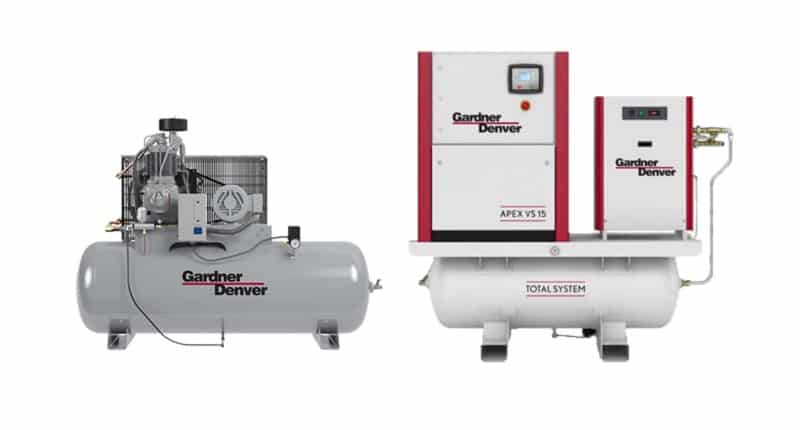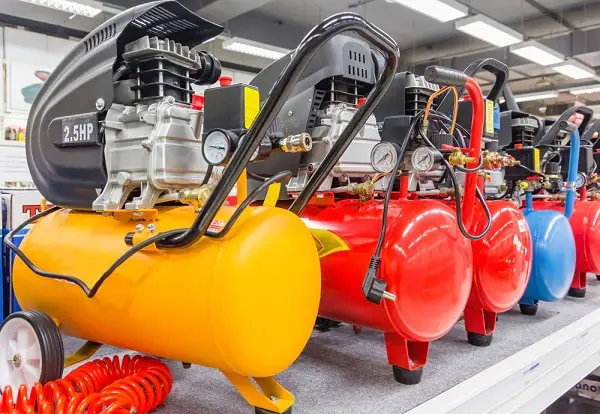
Gardner Denver Air Compressor Problems
Let’s face it–having issues with your air compressor is no fun. When your air compressor is out of commission, this can quickly disrupt your typical workflow. And if you’re using your air compressor for business, every hour of downtime in production can lead to hundreds, if not thousands of dollars in revenue lost every single hour.
Sure, if you have a Gardner Denver air compressor machine, you can rest assured that you chose a great brand of compressor for the job. As a company that’s been around since 1883, Gardner Denver has a reputation that precedes itself–it’s known for producing some high-quality pieces of equipment, and that includes its line of air compressors.
However, no matter how great a brand is, all air compressors will surely fail at some point in some way. After all, no air compressor is built to be 100% indestructible. To help you when you run into hurdles, let’s take a look at three common Gardner Denver air compressor problems and potential solutions.
1. The air compressor doesn’t start.
This can be extremely disheartening, especially when you’re pressing the Start or On button and your air compressor system return no response–not even so much as a faint noise. In most cases, this is due to either an electrical problem or a safety device trip. When your compressor doesn’t start, try doing the following:
- Check that the compressor is connected to a proper power source
- See if any error messages pop up on the compressor’s screen
- Verify whether or not the emergency stop function is out
- If needed, reset the overload relay
- Should all the above fail, inspect the machine’s chase sequence
2. You find oil in the resulting compressed air
One of the most important aspects of your air compressor’s function is to create clean and purified air. After all, the main purpose of your machine is to create compressed air. If you find that the compressed air from your Gardner Denver compressor is contaminated with oil, there are actually a few possible causes of this. Some of the most common are:
- The scavenge line may be plugged up
- You’re running your machine on a temperature that’s too high
- The oil level was too high, to begin with
- The wrong oil type may have been used
- Your compressor’s oil separator system may be old or worn
3. Your Gardner Denver compressor shuts off when running on high-temperature
This is a common problem that many Gardner Denver owners run into. When your compressor shuts off in high-temp situations, it could be due to one of several factors, such as:
- The oil level is much too low
- You’re using the wrong oil type for your compressor
- The oil cooler is dirty and clogged
- There’s a lack of proper ventilation
- The thermostatic valve isn’t functioning as it should
- The compressor’s oil lines may be clogged or obstructed
Related Video:


I have a GD Compressor Model#EDE992. Where would I find the serial # at?
I HAVE GD COMPRESSOR VS 11 SHOWS DURING WORKING SERVICE ADVISORY # 305 CHANGE OIL
I have x row 370 gardner denver air compressor and facing system pressure high can someone help ?
We have a Gardner Denver VST90A compressor that had a high interstage temp alarm #317 but has gone away after resetting. the temp now is 198 degrees. this is the first time I have seen this.
my gardner Denver model 5236 lost oil pressure I have changed oil filter, the oil and big end bearings cleaned suction strainer. can it be the oil pump